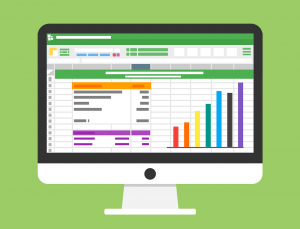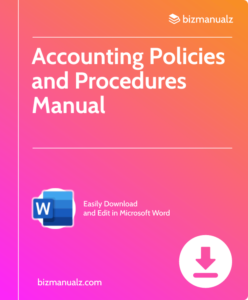Is Excel a Manual Accounting System?

Excel is a popular choice for financial record-keeping and analysis. It’s customizable and user-friendly, however, it can’t be considered a true manual accounting system. Manual systems rely on pen and paper or physical ledgers. Excel is a digital alternative. Is Excel a manual accounting system?
Understanding Excel as a Tool for Accounting
Excel is a powerful tool for accounting. It has many features and functions which make it a useful manual accounting system. With Excel, accountants can input and calculate numbers, create graphs and charts, and organize and analyze data.
Let’s look at the following table:
| Column 1 | Column 2 | Column 3 |
|---|---|---|
| Financial Records | Data Analysis | Budgeting |
| Journal Entries | Pivot Tables | Forecasting |
| Petty Cash | Formulas | Variance Analysis |
This table shows how Excel can be used in accounting. From keeping financial records to data analysis and budgeting, Excel is very versatile.
Plus, Excel integrates with other software and systems used in accounting. This helps accountants to work faster and more accurately. Additionally, Excel provides strong security, which keeps financial information safe.
Investopedia states that, “Excel is one of the most popular software applications among accountants due to its versatility and functionality.” An automated system using Excel’s ‘SUM’ function boosts efficiency, giving accountants more time for coffee!
Differentiating between manual and automated accounting systems
Data entry is a major difference between Excel and manual accounting systems. Excel allows for electronic input while manual systems require transactions to be recorded by hand. Also, Excel has formulas and functions that can automate processes.
To make Excel more effective as a manual system, documentation must be done accurately. Cell protection and password encryption can protect sensitive information. Setting up validation rules and data filters can prevent errors and fraudulent activities. Plus, regular backups are necessary to avoid data loss or corruption. These can be stored on external devices or cloud platforms.
Manual Accounting and Automated Accounting are two different things. Manual accounting uses pen and paper or physical ledgers. Automated accounting has computer software for easier organization of financial records and generates real-time reports.
Manual accounting has been used for centuries, from ancient times with clay tablets. As technology advanced, automated accounting emerged to make processes easier and more accurate.
The choice between manual and automated accounting depends on the organization’s needs. Small businesses with simple transactions may use manual accounting, but larger enterprises benefit from the efficiency and accuracy of automated systems. Trying to use Excel for manual accounting is like using a Ferrari to plow a field – fancy, but not suitable.
Examining the features of Excel in relation to manual accounting
Excel is widely used as a spreadsheet software and offers many features that make it powerful for accounting purposes. Let’s explore the key components of Excel and how they relate to manual accounting.
Excel has automated calculations, efficient data entry, and sorting/filtering capabilities that can reduce manual effort and potential errors. Data entry is intuitive and accurate. It also allows for quick organization and analysis of data, aiding in decision-making. Furthermore, Excel has templates for accounting needs such as balance sheets, income statements, and cash flow statements.
Despite its benefits, Excel also has limitations. Errors can occur if formulas are incorrectly entered or cell references are disrupted. Attention must be paid to ensure accuracy.
It is clear that Excel’s features greatly benefit manual accounting, enhancing efficiency, accuracy, and analysis capabilities. The introduction of VisiCalc in 1979 revolutionized the field by providing and alternative to manual bookkeeping methods. Excel has transformed accounting, ensuring accuracy and efficiency in financial management. Its wide use speaks to its indispensability in the digital age.
Advantages and disadvantages of Excel as a manual accounting system
Is Excel the right choice for manual accounting? Let’s take a look at its pros and cons.
- Excel is flexible. It offers customizable templates to suit different needs.
- Plus, its formulas and charting tools make data analysis quick and easy.
- Excel is also accessible offline, which means data is safe even during and outage.
But complex tasks require specialized software. Also, regular back-ups and version control are critical. To illustrate why accuracy is important, here’s an example.
In one company, a tiny formula error caused employees to be overpaid for months until auditors spotted it in a routine audit.
Excel is and invaluable sidekick – dependable, multi-purpose, and always ready to swoop in when the main accounting system is struggling.
The role of Excel in a broader accounting system
Excel is essential in a larger accounting system. It provides many benefits, like data entry, complex calculations, and data analysis. Plus, it can create professional financial reports. But that’s not all! Add-ins and automation features make Excel even better for accounting.
Still, it’s important to stay up-to-date on Excel’s latest capabilities. Training can help maximize its efficiency and provide accurate financial analysis.
Don’t miss out on Excel’s advantages in your accounting system! Use this powerful tool and see the lasting impact it has on your business.
Excel as a valuable tool in accounting, but not a complete accounting system
Excel is a great tool for accounting. It’s great for data entry, calculations, and analysis. However, it can’t be used as and entire accounting system. It’s good at organizing financial information and generating reports. But, it lacks the necessary controls and functions for complex transactions and accurate financial statements.
An accounting system should have components like general ledger management, accounts payable/receivable, inventory tracking, payroll processing, and financial statement generation. Excel can’t do all of this. Although it offers flexibility and formulas for calculations, it doesn’t have built-in features to enforce internal controls or prevent errors. Errors can go unnoticed, leading to unreliable financial data.
Excel also can’t consolidate data from multiple sources easily. Companies growing or merging need integrated systems. Combining spreadsheets from different entities manually takes time and can be error-prone.
Excel also has limited audit trails, making it hard to maintain historical data integrity. Changes made by multiple users can override previous versions without clear documentation. This makes it hard to trace back errors or validate the accuracy of financial records.
Frequently Asked Questions
FAQs about Excel as a Manual Accounting System:
Q: Is Excel considered a manual accounting system?
A: Yes, Excel can be considered a manual accounting system as it requires manual data entry and calculations.
Q: Can Excel handle all accounting tasks?
A: Excel is capable of handling various accounting tasks such as recording transactions, creating journal entries, and generating financial statements.
Q: What are the advantages of using Excel as a manual accounting system?
A: Excel offers flexibility, customizable templates, and easy data analysis, making it a popular choice for small businesses and individuals.
Q: Are there any limitations to using Excel as and accounting system?
A: Excel may lack certain features like real-time data synchronization and automated reporting, which might be essential for larger organizations.
Q: Can Excel be integrated with other accounting software?
A: Yes, Excel can be integrated with other accounting software to improve efficiency and accuracy by automating data transfer and analysis.
Q: Is Excel suitable for complex accounting processes?
A: While Excel is capable of handling complex processes, it may become time-consuming and prone to errors compared to specialized accounting software.
















Leave a Reply